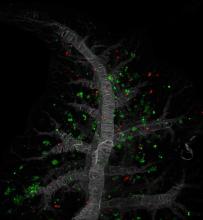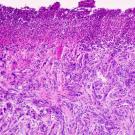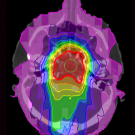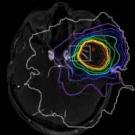News
Childhood Cancer Research at UCSF to Transcend Tissue Types With Innovative Grant
Researchers at UC San Francisco are leading a five-year, $10 million research project dedicated to pediatric cancer, funded by the first grant of its kind to focus on a molecular pathway that underlies many cancers rather than on a cancer in a particular organ or tissue in the body. The grant's
Rare Melanoma Carries Unprecedented Burden of Mutations
A rare, deadly form of skin cancer known as desmoplasmic melanoma (DM) may possess the highest burden of gene mutations of any cancer, suggesting that immunotherapy may be a promising approach for treatment, according to an international team led by UC San Francisco scientists. One of these
Genetic Makeup May Make Radiation Riskier for Pediatric Cancer Patients
Genetic vulnerabilities associated with childhood cancers may make children undergoing radiation therapy more susceptible than adults to secondary cancers, according to novel insights from researchers at UC San Francisco. Malignancies caused by radiation therapy are a major cause of mortality in
Drug for Fungal Infections in Lung Transplant Recipients Increases Risk for Skin Cancer, Even Death
Voriconazole, a prescription drug commonly used to treat fungal infections in lung transplant recipients, significantly increases the risk for skin cancer and even death, according to a new study by UC San Francisco researchers. The team recommends physicians consider patient-specific factors that
DNA-Guided 3-D Printing of Human Tissue is Unveiled
A UCSF-led team has developed a technique to build tiny models of human tissues, called organoids, more precisely than ever before using a process that turns human cells into a biological equivalent of LEGO bricks. These mini-tissues in a dish can be used to study how particular structural features
Mammary Gland Is Shaped by Adaptive Immune System During Development
In experiments with mouse tissue, UC San Francisco researchers have discovered that the adaptive immune system, generally associated with fighting infections, plays an active role in guiding the normal development of mammary glands, the only organs--in female humans as well as mice--that develop
Survivors of Childhood Cancer Have High-Risk of Recurrent Stroke
Most people assume strokes only happen to octogenarians, but recent evidence suggests that survivors of childhood cancer have a high risk of suffering a stroke at a surprisingly young age. A new study from UC San Francisco's Pediatric Brain Center shows that childhood cancer survivors suffering one







